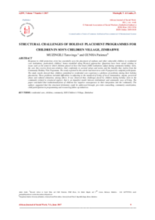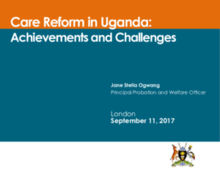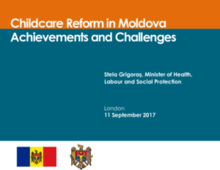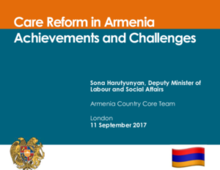Displaying 1521 - 1530 of 2221
This study observed the challenges experienced by children living in SOS Children's Village Bindura, Zimbabwe during a Community Holiday Visit Programme.
This presentation by the Principal Probation and Welfare Officer of Uganda outlines the basic demographic data of Uganda and provides an overview of the situation of children's care, and care reform efforts, in the country.
This presentation by the Minister of Health, Labour and Social Protection of Moldova outlines the basic demographic data of Moldova and provides a thorough review of the situation of children's care, and care reform efforts, in the country.
This presentation from the Deputy Minister of Labour and Social Affairs of Armenia provides an overview of the demographic data of Armenia and offers a thorough review of the situation of children's care, and care reform efforts, in Armenia.
This presentation by key actors in children's care reform in Ghana provides an overview of the demographic data of Ghana and offers a thorough review of the situation of children's care, and care reform efforts, in the country.
This report explores federal programs available to support youth aging out of foster care in the US.
This study explored whether receipt of early care and education services reduces the likelihood of foster care placement for children aged 0-5 years in the United States.
This study explores the possibility that early care and education (ECE) services (e.g., child care, preschool, day care) can help the Child Welfare System achieve its goal.
This paper describes and analyzes the implementation of trauma and evidence-informed interventions in three federally-funded statewide demonstration sites in different regional contexts throughout the United States.
This article studies the causal factors behind the major overhaul of Russia’s system for children in substitute care that has been taking place since the late 2000’s.





